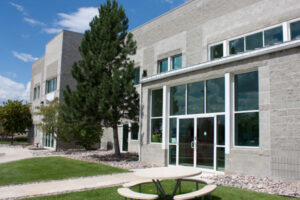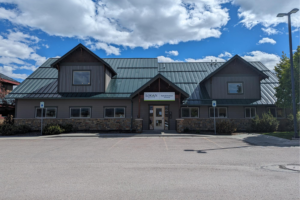Helping Children Reach Their Full Potential
At Logan Health, we are dedicated to helping children grow, develop, and thrive through specialized pediatric Physical, Occupational, and Speech Therapy services. Our expert therapists work closely with families to provide compassionate, individualized care, addressing movement, daily activities and communication skills. We create a supportive and engaging environment where every child has the opportunity to succeed at home, in school and in their communities.
Why Choose Us
- Expert pediatric therapists specialized in physical, occupational, and speech therapy
- Individualized, family-centered care tailored to each child’s needs and goals
- Comprehensive programs addressing movement, daily activities, communication, and feeding skills
- Supportive, engaging environment designed to empower children to succeed
- Collaboration with families, schools, and healthcare providers for the best outcomes
Pediatric Physical Therapy
Our Approach: Pediatric physical therapists focus on helping children develop strength, coordination, and movement skills so they can reach their full physical potential. Therapy is tailored to each child’s unique needs, whether they are recovering from injury, managing a chronic condition, or addressing developmental delays.
Conditions Treated:
- Musculoskeletal impairments and concerns
- Neurological impairments and disorders
- Assessment and recommendations for orthotics and prosthetics
- Balance and coordination problems
- Gait disorders
- Delayed gross motor development
- Infant torticollis and plagiocephaly
- Posture and movement abnormalities
- Equipment and seating needs
- Prematurity-related impairments
Pediatric Occupational Therapy
Our Approach: Pediatric occupational therapists help children develop the skills needed for daily life and school activities, including self-care, fine motor skills, sensory processing, and adaptive strategies. Therapy is individualized to enhance independence and participation in meaningful activities.
Milestones of Normal Development
Physical:
- Rolls over: 4–6 months
- Sits independently: 6–8 months
- Crawls: 7–10 months
- Walks independently: 12–15 months
- Runs and climbs stairs: 2–3 years
Fine Motor:
- Reaches and grasps objects: 3–6 months
- Transfers objects between hands: 6–9 months
- Pincer grasp: 9–12 months
- Scribbles: 12–18 months
- Uses utensils, buttons, and simple drawing: 2–3 years
Cognitive & Language:
- Babbles: 4–6 months
- Says first words: 12 months
- Combines two words: 18–24 months
- Uses short sentences: 2–3 years
- Follows two-step instructions: 3 years
Social & Emotional:
- Smiles and responds to caregivers: 2–3 months
- Shows stranger anxiety: 6–12 months
- Plays simple games: 1–2 years
- Engages in imaginative play: 2–3 years
- Cooperates with peers: 3–4 years
Conditions Treated:
- Self-care skills including feeding, dressing, and grooming
- Hand strengthening and coordination (cutting, coloring, writing, buttoning, feeding utensils)
- Sensory-motor processing and integration
- Upper extremity (shoulder, arm, and hand) splinting
- Recommendation, training, and use of adaptive equipment
- Neurodevelopmental treatment
- Visual-motor and handwriting skills
Pediatric Speech-Language Pathology
Our Approach: Pediatric speech-language pathologists work with children to develop communication, language, and feeding skills, addressing speech disorders, language delays, social communication challenges, and swallowing difficulties. Therapy is tailored to each child’s individual needs and developmental level.
Conditions Treated:
- Articulation and phonological disorders
- Childhood apraxia of speech
- Autism spectrum disorders
- Dyslexia and reading/phonics difficulties
- Pragmatic (social communication) disorders
- Bilingual articulation or language difficulties
- Expressive language difficulties (using words and sentences to express thoughts)
- Language comprehension difficulties (understanding concepts or following directions)
- Feeding, chewing, and swallowing disorders
- Hearing loss
- Resonance disorders and cleft palate
- Stuttering disorders
- Voice disorders and vocal cord dysfunction
- Traumatic brain injury
- Neurological disorders affecting speech, language and swallowing
Our Locations

Logan Health Rehabilitation - 205 Sunnyview

Logan Health Rehabilitation Whitefish
